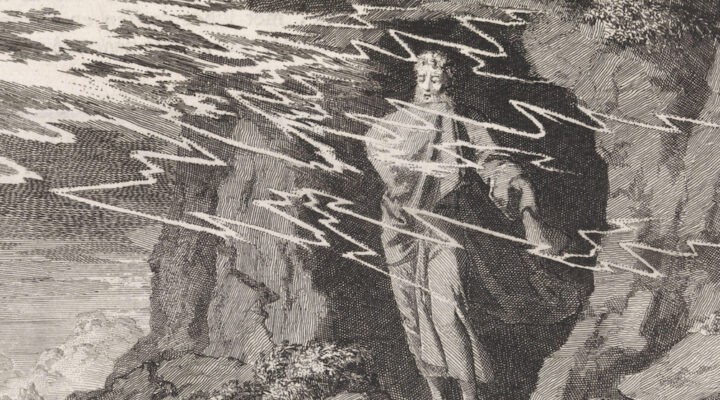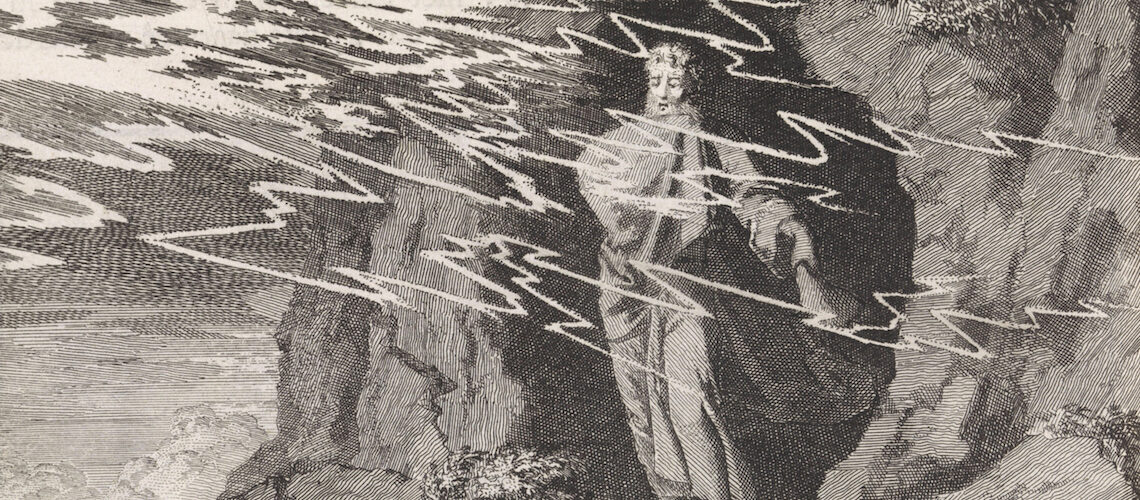As I sat in my living room watching Ryan Seacrest ring in the new year, I couldn’t help but think that, although it’s a new year, the theme seems to be the same across America. Many of my brothers and sisters of the faith are suffering from a virus that won’t seem to go away, mixed in with the effects the virus has caused.

Maina Mwaura
Let’s face it: The outlook for 2022 doesn’t seem much different than it was for 2020 and 2021. We have been in a suffering pattern for some time now and need the hope Scripture provides. Scripture is timeless, and it doesn’t avoid topics like suffering; in fact, it embraces suffering, despite our desire to avoid it.
Suffering and avoidance tend to go hand in hand throughout the Bible. For example, God’s prophet Elijah was known for his boldness, yet he hid in a cave to avoid suffering the consequences of confronting the queen. Many of us are just like Elijah, preferring the dark concealment of a cave over suffering in the light. Elijah lived during a seemingly unending pandemic of disobedience. Although he knew God’s voice and had seen God move, the stress eventually brought him to a breaking point. He thought hiding out in the cave was better than having to confront the suffering around him.
But our all-powerful God can see through rock, both to the depths of the cave and to the depths of our hearts. His words to Elijah speak also to us, even in 2022. “What are you doing here?” (1 Kings 19:9). While our caves look a bit swankier, complete with running water, electricity and Wi-Fi, we still struggle with hiding out to avoid the suffering around us that God wants us to embrace. Answering the question will help you consider the suffering you may be avoiding. It can help you walk through a world of hurt and suffering.

John Perkins (photo courtesy of Seattle Pacific University)
Recently, I spent time with Civil Rights activist John Perkins, who has suffered much ensuring the dignity and respect for all. Our conversation reminded me that suffering not only comes from God, but it also comes with God’s presence. Perkins, whose book on suffering recently was published, reminded me that suffering can be a good thing if we will look for the hidden treasure within it.
“Suffering,” he said, “has worked me down to the ground to help me to know that God is God.” His words brought to mind all the suffering he has seen as a Civil Rights leader and the pain he went through to bring about change in our country. Perkins reminded me that God is God in our suffering, remaining present with us throughout it, just as he was with Elijah in the cave.
God’s question to Elijah invited a response, which reminds us that God doesn’t want us to stay stuck in our suffering. God may not take away the pain but does want us to trust and come out of our caves. As Christ followers living in such critical times, we must model the confidence that God is the one who is in control of our situation.
So how does a loving God allow such suffering? As John Perkins observed, “The very nature of God is love. Justice is the outworking of God’s love.” When we understand that the God of love is working on our behalf during our suffering, we will then understand that God wants to use suffering to bring about change. It’s usually in our suffering that we understand how to have empathy for others. Perkins believes this is why God sometimes brings about suffering. There are countless stories of people whose experiences of suffering have led them to bring about justice and change for humankind.
“It’s usually in our suffering that we understand how to have empathy for others.”
This effort to confront suffering comes with our own sacrifice.
“Paul says I’ve been crucified with Christ, I’m being crucified with Christ,” Perkins reminded me. “Nevertheless, I live yet. Not I, but in me, Christ is taking that suffering and trying to heal me in it, so I can do more suffering and identify with others by being compassionate.”
It’s in our suffering, according to Perkins, that we should find the compassion and empathy for others. This is what everyone from Job to Elijah found during their suffering. God even tells Elijah to go back the way he came to the cave.
Although it is often difficult, we can allow God to use our suffering just as God used the suffering of Jesus on the Cross to bring about our greatest triumph and victory over suffering. It’s the Cross that reminds us that God overcomes all suffering.
Perkins agrees, saying, “The Cross identifies both suffering and healing, and we’re here to pick up the Cross and follow Jesus.”
Maina Mwaura is a freelance writer and communications consultant who lives in the metro Atlanta area. A native of Orlando, Fla., he earned a bachelor of science degree in communications from Liberty University and a master of divinity degree from New Orleans Baptist Theological Seminary.
Related articles:
Pew study offers some surprising insights to American views on suffering, salvation, heaven and hell
What if God is bigger than ‘omnipotent’? | Opinion by Russ Dean
We must learn from our suffering and help others with what we’ve learned | Opinion by Victoria Adams


